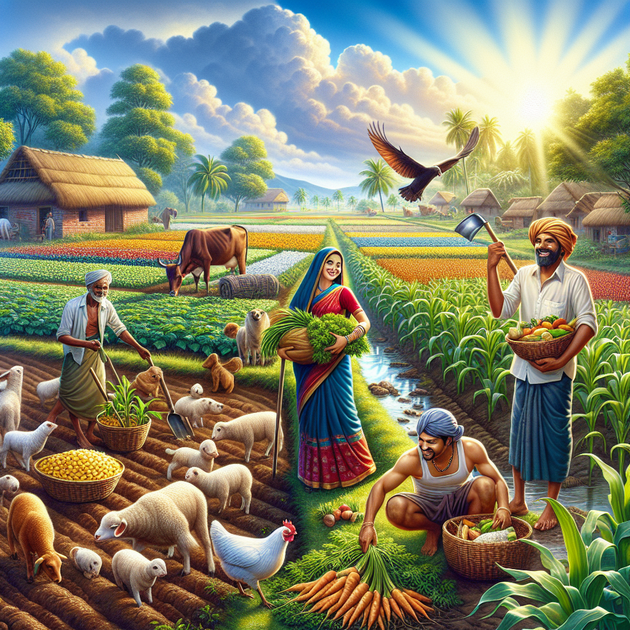Did you know that peasants—often thought of as figures from history books—actually grow about 70% of the world’s food? Surprising, right? In a time when mega-farms and high-tech agriculture make headlines, it’s easy to overlook how crucial these small-scale farmers still are. But here’s the real story: The world needs peasants now more than ever.
Peasants Aren’t a Thing of the Past
When you hear “peasant,” what comes to mind? Maybe old paintings or stories from centuries ago? But actually, peasants—in other words, small farmers working their own land—are everywhere today. From rice paddies in Asia to vegetable plots in Africa and family farms in Latin America, these folks are at the heart of our global food system.
Yet despite their importance, peasants often get pushed aside by industrial agriculture and big business interests. Their knowledge and traditional ways can be dismissed as outdated. But if you look closely at who’s really putting food on our tables—especially in poorer countries—it’s clear that supporting peasants isn’t just about nostalgia; it’s about survival.
Why Peasants Matter for Food Security
So why does the world need peasants? For starters:
- Biodiversity: Peasant farms often grow many different crops and raise various animals. This diversity helps protect against disease and climate change.
- Local Food: Most of what they grow is eaten locally or sold directly in markets—not shipped halfway around the world.
- Sustainable Practices: Traditional methods like crop rotation and natural fertilizers help keep soil healthy year after year.
- Food Security: When local people control their own land and seeds, they’re less vulnerable to outside shocks like price spikes or supply chain problems.
- Cultural Heritage: Peasant farming isn’t just about crops—it keeps local traditions alive.
In fact, studies show that if you want to feed everyone fairly while caring for the planet, empowering small farmers is one of the best bets we have.
The Challenges Peasants Face
Unfortunately, life isn’t easy for many peasants today. They often battle against:
– Lack of access to land or water
– Pressure from agribusinesses
– Unfair trade rules
– Climate change (droughts, floods)
– Limited government support
Imagine growing enough rice each year to feed your whole community—only to find that a big corporation wants your land for a sugarcane plantation. Or having your market undercut by cheap imports you can’t compete with. For millions of peasant families around the globe, this is daily reality.
A Personal Story From Rural India
Let me tell you about Geeta—a peasant farmer I met while traveling through rural India. She owns barely two acres but somehow manages to grow enough millet, lentils, vegetables—and even some fruit trees—to keep her family healthy all year round.
Geeta uses seeds saved from her mother’s time and rotates her crops so her soil stays rich without needing expensive chemicals. Despite unpredictable monsoons and rising costs, she says she wouldn’t trade her life for anything; she loves being able to feed her neighbors with what she grows herself.
But Geeta worries about her children’s future. With local land being snapped up by big companies and government help hard to find, she wonders if there’ll be room left for small farmers like her in ten years’ time.
How Can We Support Peasants?
If supporting peasants is so important (and it is!), what can ordinary folks do?
- Buy from local markets when you can—it supports family farms directly.
- Learn more about where your food comes from.
- Support policies that protect small farmers’ rights to their land and seeds.
- Share stories (like Geeta’s) so others see how vital these communities are.
The next time you enjoy a meal with friends or family, remember there’s a good chance it started with a peasant farmer somewhere in the world.
So here’s my question for you: Do you think we’re doing enough to support peasants—and if not, what could change? Let me know your thoughts!

Leave a Reply